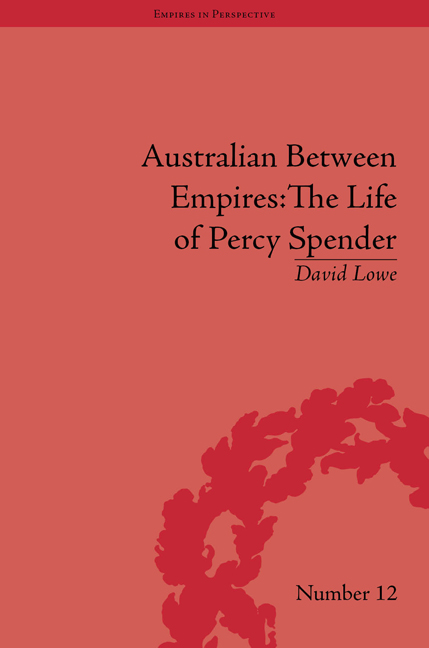Reflections
Summary
Memories of Spender tend to feature contrasts or qualifications: a loner, yet with extraordinary capacity to cultivate relations with people; a maverick within the Liberal Party, yet one of its star performers; an advocate of relinquished state sovereignty in the interests of international arbitration while acting as though this ideal was almost beyond reach; and an enthusiast of the ideas behind ‘the American Century’ while despairing at the lack of thorough Australian–US planning in defence, foreign policy and economic cooperation, in the wake of the ANZUS treaty. Rather than puzzling contradictions, I suggest that such tensions were symptomatic of a life that not only happened to be in politics, domestic and international, but a life that was, to a large degree, made by politics. Spender was more than merely an observer-participant in the great upheavals wrought by war, hot and cold, and the erosion of Europe's influence overseas in the middle decades of the twentieth century. He drew energy from travelling, reading, debating and generally plunging himself into the ceaseless task of constructing policy that would cater for Australia's distinctive interests in this changing world.
In the realm of Australian foreign policy he is rightly celebrated. ANZUS and the Colombo Plan, while both the products of several policymakers and particular circumstances, owe a lot for their conception to Spender's drive, intellectual rigour and will to succeed. His lobbying and cajoling could be abrasive, but it was also effective.
- Type
- Chapter
- Information
- Australian Between EmpiresThe Life of Percy Spender, pp. 181 - 184Publisher: Pickering & ChattoFirst published in: 2014



